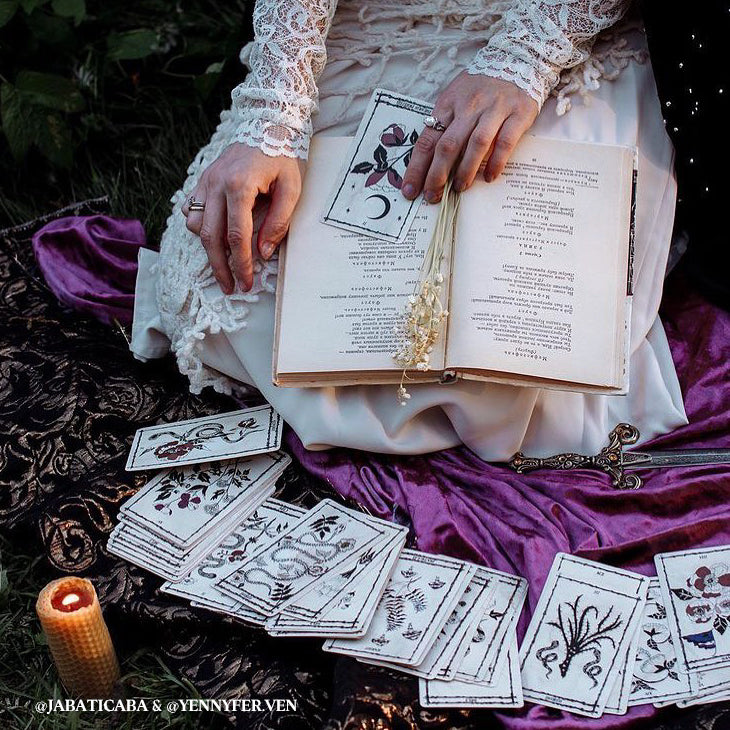🥀 BRING THESE CARDS INTO YOUR HEARTH & LET THE SPIRIT OF THESE PLANTS BLOOM WITHIN YOU🌜
🥀 BRING THESE CARDS INTO YOUR HEARTH & LET THE SPIRIT OF THESE PLANTS BLOOM WITHIN YOU🌜
FIELD NOTES
A Journey With Botanicals Through Tarot & Oracle
 The Ophidia Rosa Botanical Tarot deck and Pythia Botanica Oracle deck both took root around the same time, inspired by the intersection of my life with plants, Greek mythology, art, and a myriad of energies I had yet to fully understand. While the Oracle deck connected my ancient Hellenic heritage closer to an enchantment with botanical mythology, the Ophidia Rosa drew on a broader timeworn truth I've received from the Tarot.
The Ophidia Rosa Botanical Tarot deck and Pythia Botanica Oracle deck both took root around the same time, inspired by the intersection of my life with plants, Greek mythology, art, and a myriad of energies I had yet to fully understand. While the Oracle deck connected my ancient Hellenic heritage closer to an enchantment with botanical mythology, the Ophidia Rosa drew on a broader timeworn truth I've received from the Tarot.
The Pythia Botanica instills the ancient mythological lineage of plant magic with present-day personal meaning to guide readers through fate. Beyond its initial intentions, the deck somehow springs with elements that remain a mystery even to me. This gives it an amorphous power where others can find light that is uniquely their own.
For reading these cards, I would suggest embracing the openness that an Oracle deck uniquely offers, bringing an open mind, heart, and pure intentions to the table. I always spend time with my decks, and get to know the cards on the one-on-one level that one might meet a person or group of individual energies.

Oracle cards can be read alone or in unison with a Tarot deck; they can be read in many spreads (one-card pulls, three-card spreads, traditional Tarot spreads such as the Celtic Cross and Zodiac). The advice I tell close friends is to follow one’s intuition and trust in oneself, especially when you first start reading and it can feel a bit overwhelming. You hold all of the answers, and the cards can serve as a window to peer inward, a prism of truth, or a reflection to glare purpose back upon oneself.
The Ophidia Rosa is about transformation: the conversion of seed into bloom, the movement of crescent bodies into full moons, and the renewal of childlike wonder from weary, full-grown forms. It's a very visceral form of Tarot, and one that required digging deep into the garden, with all the twists and turns and dirt one might encounter among those thorns and worms and seeds and leaves.
The Pythia Botanica Oracle, along with its sister deck, the Ophidia Rosa Tarot, are works meant to flourish inside the garden, to bring a deeper connection to the flora around us, to strengthen our intuition and to welcome the wisdom plants so selflessly give.








